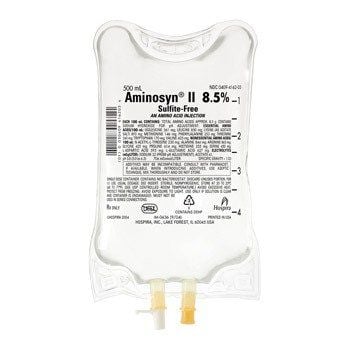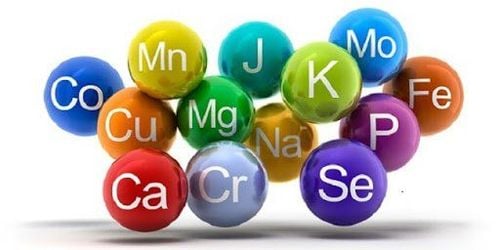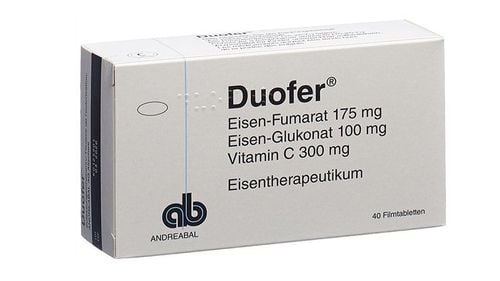This is an automatically translated article.
The human body needs a balanced diet to grow, develop and function. Undernutrition or excess nutrition and energy both lead to health problems.
1. How is obesity harmful to health?
Obesity increases the risk of cardiovascular diseases, diabetes, high blood pressure, and some cancers such as breast cancer, colon cancer, and uterine cancer. Besides, obesity is also linked to infertility.
2. What is a balanced diet?
A balanced diet that includes the right combination of proteins, carbohydrates and fats.
3. What is the role of protein with the body, what food is protein in?
Protein provides essential nutrients for the body to grow and repair damaged tissues and muscles.
Protein-rich foods include:
Meats: Beef, pork, fish, poultry. Eggs and dairy products. Legumes, beans, seeds. For vegetarians, protein can still be provided enough through foods such as nuts, nut butters, soy products such as tofu, etc. Vegetarians use products from milk will have more protein products such as milk and eggs.
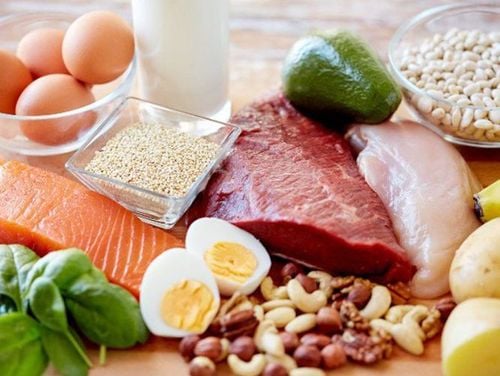
Protein cung cấp dưỡng chất thiết yếu cho cơ thể phát triển
4. Why must there be fat in the nutritional composition?
Certain types of fats, like Omega-3 fatty acids, play an important role in brain development. Fat also plays an integral role in the functioning of the immune system as well as in blood clotting, and in order to absorb vitamins A, D, E, and K, fat is essential.
Fats come in many different types:
Unsaturated fats usually exist in liquid form, most of which are derived from plants. Saturated fat is usually solid when frozen, mainly derived from meat and dairy products. Trans fat is a saturated fat that has been chemically processed to remain solid at room temperature. Each type of fat has different effects on the human body. Unsaturated fats should be obtained from vegetable oil products. Eating too much saturated fat can lead to increased cholesterol levels in the blood, thereby increasing the risk of cardiovascular diseases. If the percentage of body fat is too high, it will easily cause many diseases, such as diabetes, cardiovascular disease, bone and joint disease, ...
5. How to reduce fat intake?
Total fat intake can be reduced by changing the way food is prepared:
Boil, bake, blanch, or steam food instead of frying. Remove all fat from the meat. Remove the skin when using poultry.
6. How does the body use carbohydrates?
All types of carbohydrates when entering the body will be converted into glucose, providing energy for all body activities.
7. How many types of carbohydrates are there?
There are two types of carbohydrates that are simple carbohydrates and multi-carbohydrates.
Simple carbohydrates are found in foods that are naturally sweet, such as fruit, and are found in sugar, honey, and syrups. Simple carbohydrates provide quick energy for the body because they are easy to digest and absorb. For the same reason, it is recommended to limit the amount of simple carbohydrates absorbed into the body to avoid excess energy by limiting the intake of foods and drinks that have been added sugar.
Multi-carbohydrate is found in rice, bread, potatoes, corn, some fruits,... Multi-carbohydrate also contains fiber needed for the body. Multi-carbohydrates provide longer-lasting energy for the body because compared to simple carbohydrates, they take longer to digest and absorb.
8. What is fiber?
Fiber is commonly found in plant foods. The human digestive system cannot digest fiber, but it cannot be without it. Fiber helps avoid constipation, helps stabilize blood sugar levels. Eating foods with a low glycemic index will help the body feel full faster, reduce hunger, thereby supporting weight loss, lowering blood cholesterol levels and preventing diabetes.
Foods high in fiber include:
Fruits. Green vegetables. Whole grains.
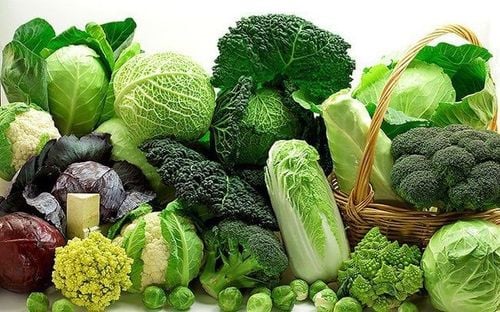
Rau xanh rất giàu chất xơ
9. Why is calcium needed in the diet?
Calcium plays an important role because it helps keep bones strong.
Calcium is found in:
Skim milk and dairy products (such as cheese, yogurt,...). Vegetables are dark green. Soybeans and soy products. Several types of fish and seafood. Cereals and fruit juices are fortified with calcium.
10. What is the role of vitamin D in a healthy diet?
Vitamin D plays an essential role because it helps the body absorb calcium.
Vitamin D is found in vitamin D fortified milk, fish that are high in unsaturated fats (eg salmon). Besides, just exposure to the sun also helps create a chemical reaction in the skin to produce vitamin D.
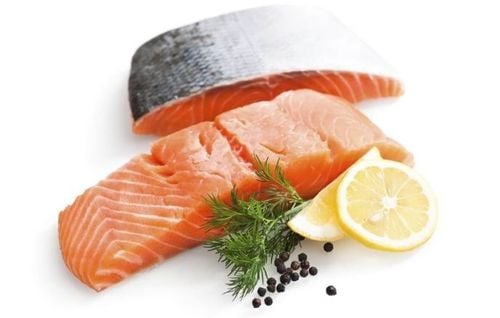
Cá hồi chứa nhiều chất béo không bão hòa tốt cho sức khỏe
11. Why is iron needed in the diet?
Iron is a raw material for the production of red blood cells. The most common cause of anemia is iron deficiency.
Foods rich in iron are abundant and easy to find:
Iron fortified cereals . Spinach. Legumes (soybeans, white beans, red beans, lentils, chickpeas). Mussels and oysters. Meats (beef, duck, lamb). Animal organs (liver, intestines, ...) should eat foods rich in iron along with foods rich in vitamin C (such as oranges, tomatoes, ...) for better absorption of iron by the body.
12. Folic acid and its role in the body
Folic acid is a B vitamin, also known as Folate, that plays an important role in improving overall health as well as reducing the risk of neural tube defects in the fetus for pregnant women.
Folic acid is abundant in:
Foods that have been fortified with folic acid (such as bread, cereals, rice,...). Dark green vegetables. Fruit of the citrus genus. Kinds of bean. However, it is possible that the daily diet does not provide enough folic acid, so women of childbearing age should take 400 micrograms of folic acid daily.
13. Sodium and the Diet
Sodium has been linked to high blood pressure, so a small amount of 2300 mg should be consumed each day - the equivalent of a teaspoon of salt. If you're over 50, or have diabetes, high blood pressure, or kidney disease, that number is limited to 1500 mg/day.
Please dial HOTLINE for more information or register for an appointment HERE. Download MyVinmec app to make appointments faster and to manage your bookings easily.
The article references the source: acog.org.



